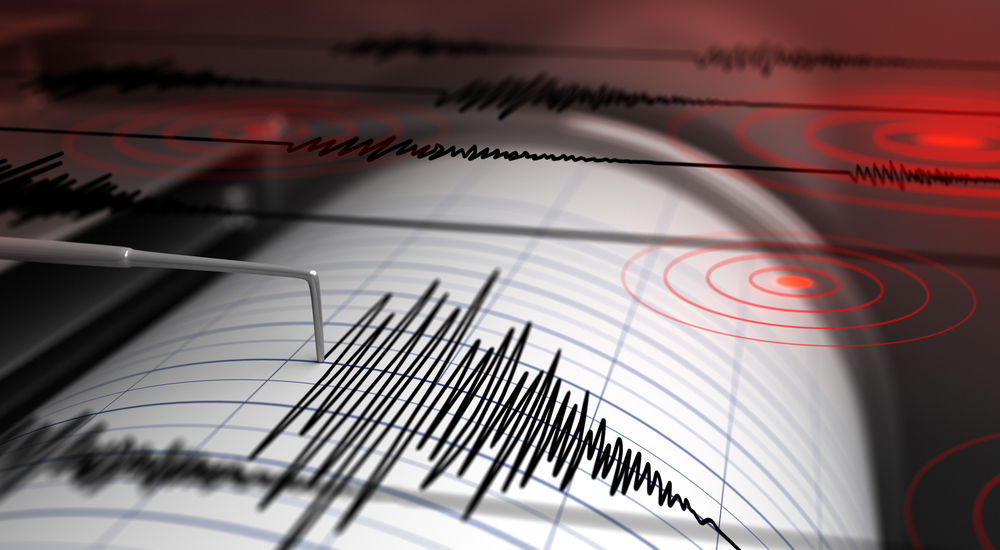How ready and prepared are you for an earthquake? If you still don’t have an action plan yet, check out these tips on earthquake preparedness.
Earthquake Preparedness Tips
There are many natural disasters that can strike and put your family and your home in danger, including flash flooding, lightning strikes, tornadoes, hurricanes, winter storms, tsunamis, and earthquakes.
With some natural disasters, you have advanced warning and can prepare for the worst. With others, they are a shock to everyone.
You may think that earthquakes are a West Coast concern exclusively, but that’s just not true. While they do receive more seismic action due to the San Andreas Fault, earthquakes happen every day, all over the world.
Tectonic plates are constantly moving and colliding, causing rocks to break under the stress. When the rocks break, they cause earthquakes. Unfortunately, there is no advanced warning for when an earthquake may shake things up.
Just like with any other emergency situation, you should take precautions prior to an earthquake occurring and know what to do during an earthquake to help avoid injury.
Before an Earthquake
Earthquakes typically last only a few seconds but can cause extreme damage in that short time. To prevent increased damage, possible injury, and being stranded while you wait for help, you can prepare for potential earthquakes in the following ways:
- Rearrange your home for safety, including storing heavy objects on lower shelves and storing breakable objects in cabinets with latched doors. Remove any heavy mirrors or pictures from above where people frequently sit or sleep.
- If you have large furniture or appliances, tether them to the walls.
- Stock up on emergency supplies in case the damage is extensive in your area. You should be able to be self-sufficient for two weeks.
- Build a disaster supplies kit.
- Store flammable liquids away from potential ignition sources such as water heaters, stoves, and furnaces.
- Know how to turn off the water, electricity, and gas to your house. Keep tools handy to do so.
During an Earthquake

Since you only have a few seconds to make your way to a safe place, you need to know what to do instinctively. You also need to educate all family members and children on what to do, since you may not be able to get to them in time to direct them.
- If you are indoors, stay inside and move to a safe location in the room, such as under a strong desk, a strong table, or along an interior wall. Protect yourself as best you can from falling objects, and stay near the structural strong points of the room. Stay away from windows, mirrors, hanging objects, heavy furniture, appliances, or fireplaces.
- If you are cooking, turn off the stove and move to a safer place.
- If you are outdoors, move to an open area where falling objects are less likely to strike you. Move away from buildings, powerlines, and trees.
- If you are driving, slow down and stop on the side of the road. Avoid stopping on or under bridges and overpasses, or under power lines, trees, or large signs, and stay in your car.
After an Earthquake
After the earthquake, you’ll need to assess the damage and any injuries that were sustained. Be mindful that items could continue to slip and fall if they have been knocked off balance.
- Check for and attend to your own injuries if needed and then help anyone around you.
- Check for damage. If the building you are in is badly damaged, you should leave it and not return until it has been inspected by a professional.
- If you smell or hear a gas leak, get everyone outside, and open windows and doors. If you can do it safely, turn off the gas at the meter. Report the leak to the gas company and fire department. Do not use any electrical appliances so that you do not create a fire.
- If the power is out, unplug all appliances to prevent damage when the power is turned back on.
- If you see sparks, frayed wires, or smell hot insulation, turn off electricity at the main fuse box or breaker. But if you will have to step in water to turn off the electricity, you should call an electrician to turn it off for you.
Earthquakes are one of nature’s surprises that you cannot plan for. You should take all of the precautions that you can, and then act rationally to protect yourself physically as the earthquake occurs. Having an earthquake preparedness plan will always come in handy.
How are you preparing for natural disasters? Share with us any valuable tips you have in the comments section!
Up Next:
- How To Pack An Emergency Survival Kit For Any Disaster
- How To Build An Emergency Preparedness Kit For The Whole Family
- Earthquake Survival Tips: Think You’re Safe? Think Again


